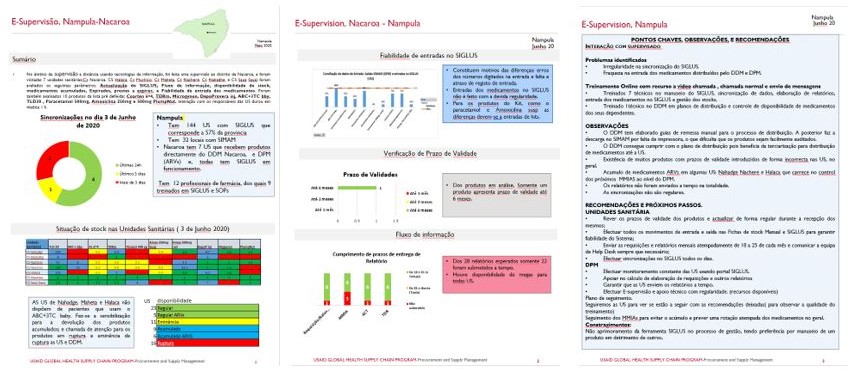Lessons Learned
- Training the end users is a top priority because the system’s success depends on users’ utilizing software features to their potential and enabling relevant and meaningful data collection.
- When supervisors and supervisees use data and visualize the stock status together, supply chain management improvements can be made remotely.
- Remote supportive supervision still motivates staff remotely and provides moral and technical support when in-person visits are not possible.
- SIGLUS synchronization, delayed product entry, and internet connectivity were the greatest challenges.
For more information, please contact the Supply Chain Practice Management Team at supplychainteam@chemonics.com.

